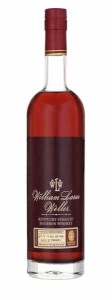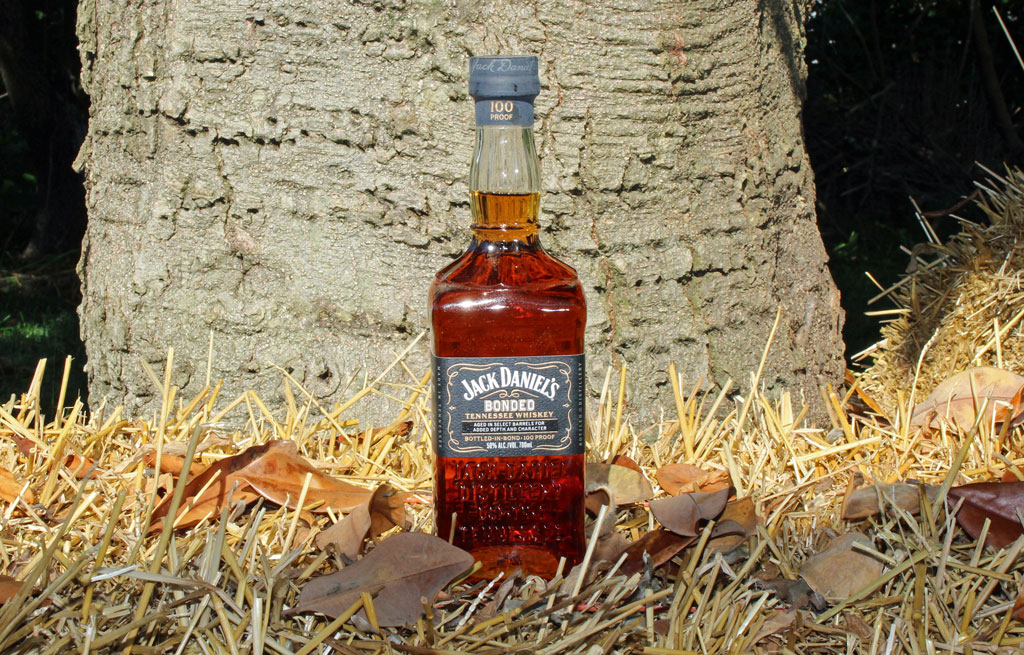Whiskey History: W.L. Weller
By Richard Thomas

(Credit: Buffalo Trace)
Born in 1825, William Larue Weller was reportedly the grandson of German immigrants who came to Central Kentucky on a flatboat in 1794, and settled near Bardstown in 1800. Like many small farmers in Kentucky’s frontier days, Weller’s grandfather was also a small distiller. Unlike many Kentucky farming families, the Wellers were destined to build on their whiskey-making, rather than treating it as a sideline.
However, all of that was in the future. In the 1840s, W.L. Weller moved to Louisville, and in 1847 he joined the Louisville Brigade and went off to fight in the Mexican War. After the war, Weller set up what would today be called an Non-Distiller Producer (NDP) or negociant with his brother Charles, selling their own brand under the slogan “honest whiskey at an honest price.” William Larue Weller & Brother kept their Louisville shop between what are now Jefferson and Liberty Streets.
It was during this period that W.L. Weller was purported to have invented wheated bourbon, where wheat replaces rye in the mashbill, producing a smoother, richer flavor. The irony is that William Larue Weller & Brother, as a whiskey trading and bottling company, did not own and operate their own distillery at the time. Ergo, their famous contribution to American whiskey-making could only have come from made-to-order, sourced bourbon.
The Civil War brought great upheaval to the Southern-leaning Weller clan. Two of Weller’s brothers fought for the Confederacy, with John Weller serving in the famed Orphan Brigade, rising to the rank of Captain, and wounded at Chickamauga.
William’s partner Charles, however, stayed with the family business. In another family irony, that choice meant that it was Charles, and not the two brothers in butternut, who lost his life. He was murdered by bandits in 1862 while trying to collect on a business debt in Tennessee.
After the war, Captain John came to the family firm, replacing Charles. As his sons grew up, they came into the business as well, and by the 1870s the business had moved to Louisville’s Main Street and was known as “William Larue Weller & Sons.”
Yet it was in 1893 when Weller made his second truly significant move in the history of American whiskey, when he hired Julian Van Winkle. Later known as “Pappy,” Van Winkle got his start in the whiskey trade working for Weller. A few years later, Weller retired, leaving the business to his brother John and his eldest son, George. He died in 1899, and his company later came to merge in 1909 with the A. Ph. Stitzel Distiller owned by his former employee, Julian “Pappy” Van Winkle.
Today the William Larue Weller name continues in a line of Buffalo Trace bourbons, including W.L. Weller 12 Year, W.L. Weller Special Reserve and the Antique Collection W.L. Weller.




I have 2 W.L. Weller bottles one is a limestone water bottle it has Van Winkle sig. they seem to be very old . Could you tell me anything about them if I sent pictures or tell me who I could talk to . Please call instead of email my # 502 641 2221 thank you in advance
Is W L Weller’s still made ??
Where in Texas can I find it
Any Weller brand bourbon is difficult to find now; Pappy van Winkle is mostly made from Buffalo Trace’s wheated bourbon, and Weller comes from the same stock. So, Pappymania has made Weller scarce. That said, several expressions go under the Weller name and they are in general distribution. The problem is they are hunted to death.
It is still made and sold. My wife just scored a bottle of the Special Reserve at Goody Goody in Plano TX. They had two bottles but we could only buy one.
most Liquor Depot’s have them.
I have a sealed 1/2 pint bottle of W.L. Weller Special Reserve Bourbon Whiskey that was bottled in Louisville, Jefferson County, Kentucky. I am told this is a rare bottle. How would I go about finding out what this bottle might be worth?
I have an older “OLD WELLER” the Origional 107 proof bottle from 1970 #5-1322, wish I could still get it!